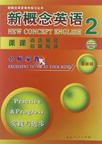新概念英语系列练习丛书·名师家教
出版时间:2004-4 出版社:延边人民出版社 作者:赵小磊 编 页数:260
内容概要
《新概念英语课文全解2:实践与进步》介绍私人谈话、早餐还是午餐?请给我寄一张明信片、激动人心的旅行、无错号之虞、珀西·巴顿斯、为时太晚、最好的和最差的、冷遇、不适于演奏爵士乐、礼尚往来、再见,一路顺风等共九十六个单元的内容。
书籍目录
Lesson 1 A private conversation私人谈话Lesson 2 Breakfast or lunch?早餐还是午餐?Lesson 3 Please send me a card请给我寄一张明信片Lesson 4 An exciting trip激动人心的旅行Lesson 5 No wrong numbers无错号之虞Lesson 6 Percy Buttons珀西·巴顿斯Lesson 7 Too late为时太晚Lesson 8 The best and the worst最好的和最差的Lesson 9 A cold welcome冷遇Lesson 10 Not for jazz不适于演奏爵士乐Lesson 11 One good rum deserves another礼尚往来Lesson 12 Goodbye and good luck再见,一路顺风Lesson 13 The Greenwood Boys绿林少年Lesson 14 Do you speak English?你会讲英语吗?Lesson 15 Good news佳音Lesson 16 A polite request彬彬有礼的要求Lesson 17 Always young青春常驻Lesson 18 He often does this!他经常干这种事!Lesson 19 Sold out票已售完Lesson 20 One man in a boat独坐孤舟Lesson 21 Mad or not?是不是疯了?Lesson 22 A glass envelope玻璃信封Lesson 23 A new house新居Lesson 24 It could be Worse不幸中之万幸Lesson 25 Do the English speak English?英国人讲的是英语吗?Lesson 26 The best art critics最佳美术评论家Lesson 27 A wet night雨夜Lesson 28 No parking禁止停车Lesson 29 Taxi!出租汽车!Lesson 30 Football or polo?足球还是水球?Lesson 31 Success story成功者的故事Lesson 32 Shopping made easy购物变得很方便Lesson 33 Out of the darkness冲出黑暗Lesson 34 Quick work破案“神速”Lesson 35 Stop thief!捉贼!Lesson 36 Across the Channel横渡海峡Lesson 37 The Olympic Games奥林匹克运动会Lesson 38 Everything except the weather唯独没有考虑到天气Lesson 39 Am I all right?我是否痊愈?Lesson 40 Food and talk进餐与交谈Lesson 41 Do you call that a hat?你把那个叫帽子吗?Lesson 42 Not very musical并非很懂音乐Lesson 43 Over the South Pole飞越南极Lesson 44 Through the forest穿过森林Lesson 45 A clear conscience问心无愧Lesson 46 Expensive and uncomfortable既昂贵又受罪Lesson 47 A thirsty ghost嗜酒的鬼魂Lesson 48 Did you want to tell me something?你想对我说什么吗?Lesson 49 The end of a dream美梦告终Lesson 50 Taken for a ride乘车兜风Lesson 51 Reward for virtue对美德的奖赏Lesson 52 A pretty carpet漂亮的地毯Lesson 53 Hot snake触电的蛇Lesson 54 Sticky fingers黏糊的手指Lesson 55 Not a gold mine并非金矿Lesson 56 Faster than sound!比声音还快!Lesson 57 Can I help you,madam?您要买什么,夫人?Lesson 58 A blessing in disguise?是因祸得福吗?Lesson 59 In or out?进来还是出去?Lesson 60 The future卜算未来Lesson 61 Trouble with the Hubble哈勃望远镜的困境Lesson 62 After the fire大火之后Lesson 63 She was not amused她并不觉得好笑Lesson 64 The Channel Tunnel海峡隧道Lesson 65 Jumbo versus the police小象对警察Lesson 66 Sweet as honey!像蜜一样甜!Lesson 67 Volcanoes火山-Lesson 68 Persistent纠缠不休Lesson 69 But not murder!并非谋杀!Lesson 70 Red for danger危险的红色Lesson 71 A famous clock一个著名的大钟Lesson 72 A car called Bluebird“蓝鸟”汽车Lesson 73 The record-holder纪录保持者Lesson 74 Out of the limelight舞台之外Lesson 75 SOS呼救信号Lesson 76 April Fools’Day愚人节Lesson 77 A successful operation一例成功的手术Lesson 78 The last one?最后一枝吗?Lesson 79 By air乘飞机Lesson 80 The Crystal Palace水晶宫Lesson 81 Escape脱逃Lesson 82 Monster or fish?是妖还是鱼?Lesson 83 After the elections大选之后Lesson 84 On strike罢工Lesson 85 Never too old to learn活到老学到老Lesson 86 Out of control失控Lesson 87 A perfect alibi极好的不在犯罪现场的证据Lesson 88 Trapped in a mine困在矿井里Lesson 89 A slip ofthe tongue口误Lesson 90 What’S for supper?晚餐吃什么?Lesson 91 Three men in a basket三人同篮Lesson 92 Asking for trouble自找麻烦Lesson 93 A noble gift崇高的礼物Lesson 94 Future champions未来的冠军Lesson 95 A fantasy纯属虚构Lesson 96 The dead retum亡灵返乡
章节摘录
2)表示“花费时间或精力做某事”时,在spend time后面一般需要接in或on加一个名词或动词来表示用途。当用途为表示动作的名词时,前面多用介词in,但当用途为并非表示动作的名词时,则介词用on,当现代英语中in通常省略。因此,其句型为spend time in(on)sth.与spend time(in)v—ing。如: We spent many hours in a pleasant conversation.我们畅谈了许多小时。 He has spent a long life in the study.他已花费了长长的一生在这项研究中。 We spent two years on the projeet.我们在这个项目上花了二年时间。注:当表示“为了某个目的而花费时间和精力”时,后面的动词短语表示目的,所以用to v形式,而不用(in)v—ing。如: He spent much time to catch up with his classmates.他为了赶上同学花了很多时间。 3)表示“消耗,用完(气力)”。如: He has spent his strength without doing anything useful. 他把精力都耗费完了,却没有做什么有用的事。4)表示“度过,过(日子),利用,消遣”,因用作此意时作及物动词用,因而spend后一定要有宾语。汉语“昨天晚上我去看电影,你怎么度过的?”英语应说:“Last night 1 went to a movie.How did you spend thenight?”句中宾语the night不能省去。又如: How do you spend your spare time?你怎样利用你的业余时间? 表示“在某个地点度过时间”时,根据地点的常用习惯搭配,可分别用in,on或at。如: We spent two days in each town.我们在每个小镇上都度过了两天。(注:这里in不能换用on) He spent all his life in the same town.他在一个城市里过了一辈子。 We spent the night at a cheap hotel.这个夜晚我们在一个便宜的旅店度过。 Ⅱ.vj. 表示“花费,浪费;耗尽,用尽”。如: He is always spending.他挥霍成性。 Candles spend fast in draught.风中之烛燃得快。 Don’t spend without the thought of the next day.花钱不要只顾眼前不想明天。
图书封面
评论、评分、阅读与下载
